Addition Teaching Resources
Introduce addition this school year with printable worksheets, digital activities, adding games, addition word problems, flashcards and more to help students understand how to add numbers and apply addition strategies to math problems.
This teaching resource collection was created by the teachers on the Teach Starter team for elementary teachers. Each of the curriculum-aligned resources has been carefully reviewed and curated by our expert teachers to make sure it's ready to use with your students! Browse printables and digital activities for teaching students how to make 10, how to add integers and more, plus find differentiated resources to help you meet each student's needs!
New to teaching addition, or just looking for new ways to engage your students? Read on for a primer from our teacher team, including a kid-friendly definition and some common vocabulary!
What Is Addition? A Kid-Friendly Definition
Let's start with a definition of this math operation that's easy for them to understand!
Addition is a math operation that involves combining two or more numbers to find a total. The symbol (+) is used to indicate addition, and this is called a plus sign.
Here's an example of addition at work!
In the equation 2 + 3 = 5, the numbers 2 and 3 are added together to get a sum of 5.
Addition Terms for Kids to Learn
There are plenty of new vocabulary words for your students to learn when introducing addition. Here are some of the terms you will want to start off with.
Sum
The sum is the result of adding two or more numbers. It's the solution or answer to an addition problem!
In the equation 2 + 3 = 5, 5 is the sum.
Addend
The numbers being added in an addition equation are called addends.
In the equation 2 + 3 = 5, for example, both 2 and 3 are addends.
Commutative Property
The commutative property states that changing the order of the addends in your addition problem does not change the sum.
For example, 2 + 3 is the same as 3 + 2.
Associative Property
The associative property states that changing the grouping of the addends in your math problem will not change the sum.
For example, (2 + 3) + 4 is the same as 2 + (3 + 4).
Repeated Addition
Sometimes a math problem involves adding the same number multiple times. We call this repeated addition, and it's a way to find the product of two numbers where one of the numbers is repeated a certain number of times.
Repeated addition is handy for helping students understand multiplication. After all, multiplication can be thought of as repeated addition.

Cartoon plus sign
What Is Partial Sums Addition?
If you know what a sum is, you're halfway to understanding partial sums addition! This math vocabulary term refers to adding two or more numbers by breaking apart the addends and adding the value of the digits in each place value position from right to left.
This handy strategy is great to use with students when they are first learning to add two or more numbers. Partial sums addition breaks down the process of addition into smaller, more manageable steps.
Let's look at an example.
If you have the 36 + 27 and want to use partial sums addition, you start by determining the value of the digits in the ones place, adding them together, and writing down the sum (6 + 7 = 13).
Next, add the value of the tens place digits together (30 + 20 = 50), and write down the answer under the previous sum. Add together the two partial sums to get your answer, 63.
- Plus Plan
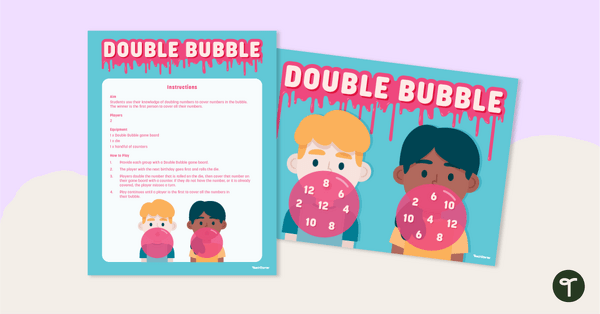
Double Bubble – Doubling Game
Practice the doubles addition strategy with this fun board game.
- Plus Plan
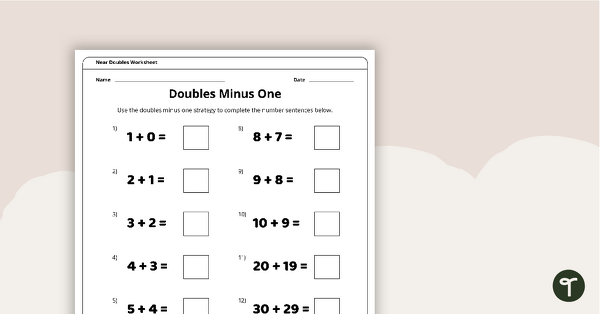
Doubles Minus One - Worksheet
Practice the doubles minus one addition strategy with this one-page worksheet.
- Plus Plan
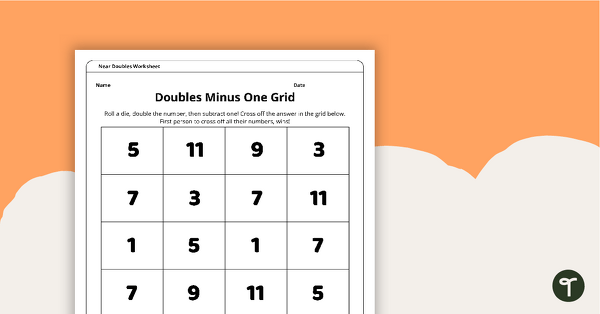
Doubles Minus One - Grid Game
Practice the doubles minus one addition strategy with this dice game.
- Plus Plan
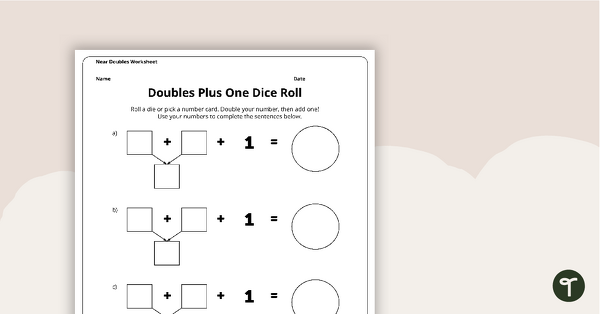
Doubles Plus One - Dice Roll Worksheet
Practice the doubles plus one addition strategy with this one-page worksheet.
- Plus Plan
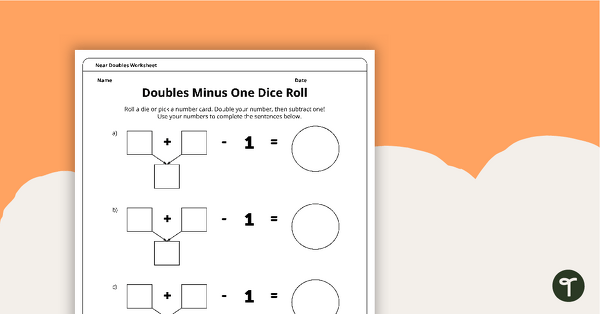
Doubles Minus One - Dice Roll Worksheet
Practice the doubles minus one addition strategy with this one-page worksheet.
- Plus Plan
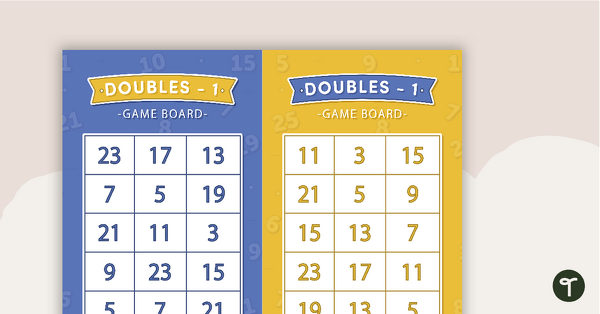
Doubles Minus 1 - Game Boards
30 game boards to use when practicing the doubles minus one strategy with single and double-digit numbers.
- Plus Plan
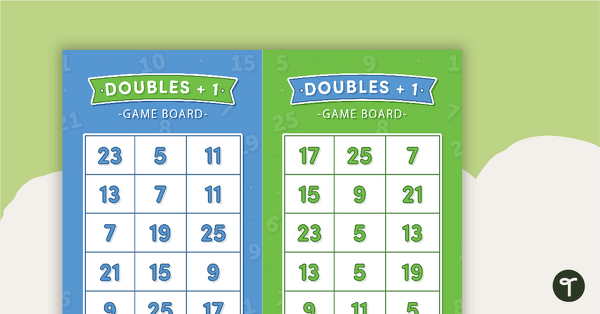
Doubles Plus 1 - Game Boards
30 game boards to use when practicing the doubles plus one strategy with single and double-digit numbers.
- Plus Plan
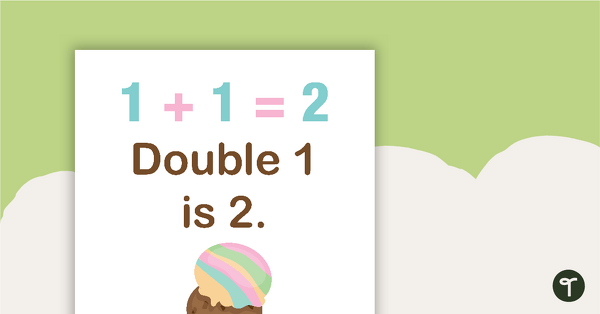
Doubles to Twenty
A set of 20 posters to help students remember double numbers to ten.
- Plus Plan
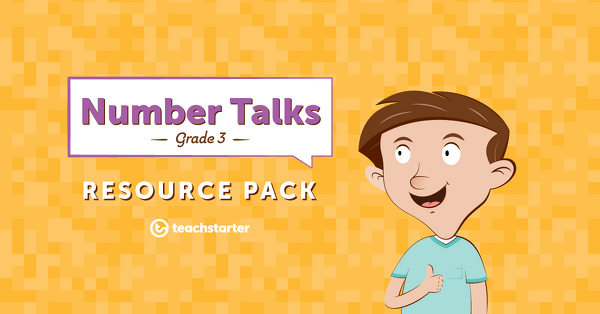
Number Talks Teaching Resource Pack - Grade 3
A collection of number talks teaching resources that support meaningful and highly engaging conversations in the mathematics classroom.
- Plus Plan
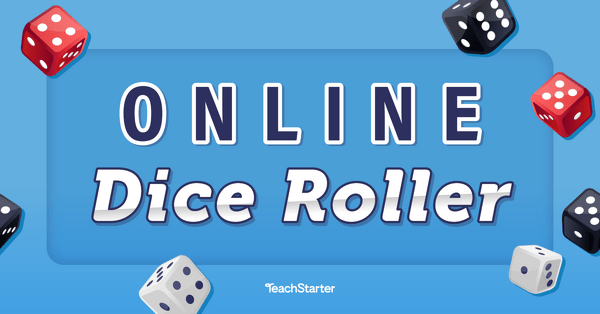
Online Dice Roller
Roll out a free online dice roller, designed for classrooms, with the ability to roll as many as 6 different types of dice at a time. This teacher-created resource is the perfect addition to your next math lesson plan!
- Plus Plan
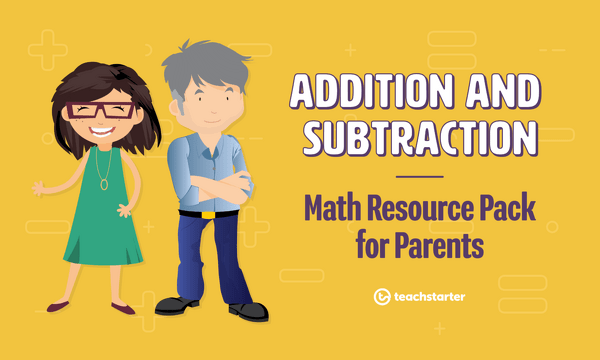
Math Resource Pack for Parents - Addition and Subtraction
An extensive collection of resources for parents to help Grade 2 and Grade 3 children with addition and subtraction.
- Plus Plan
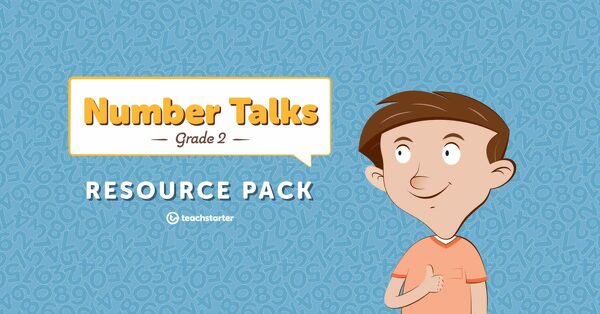
Number Talks Teaching Resource Pack - Grade 2
A collection of number talks teaching resources that support meaningful and highly engaging conversations in the mathematics classroom.
- Plus Plan
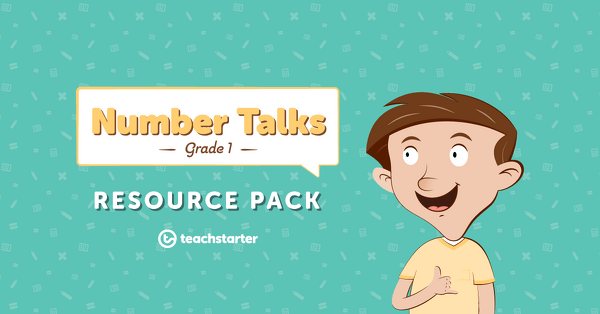
Number Talks Teaching Resource Pack - Grade 1
A collection of number talks teaching resources that support meaningful and highly engaging conversations in the mathematics classroom.
- Plus Plan
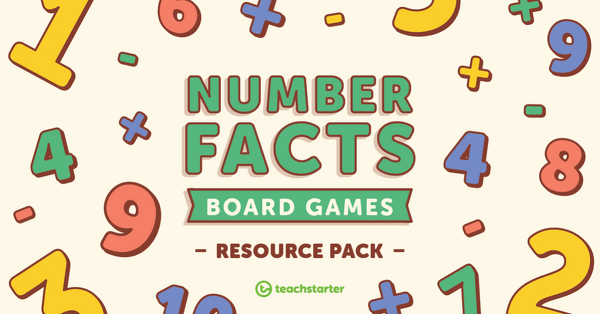
Number Facts Board Games
A collection of board games to reinforce your students' knowledge of addition and subtraction fact strategies.
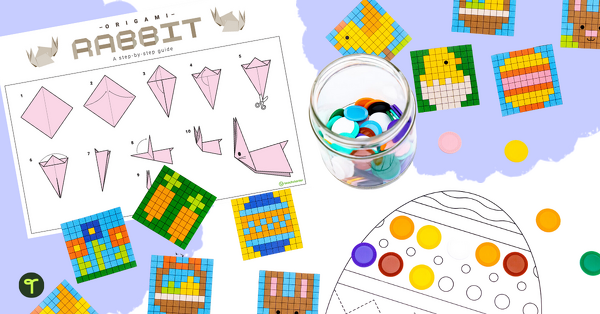
8 Easter Math Activities That Bring Springtime Fun Into School
These quick and easy Easter math activities and math center ideas bring spring into the classroom and can be holiday focused or not!
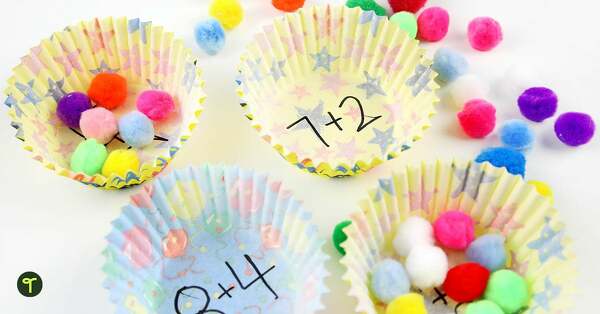
9 Easy Addition Activities for Kids That Are Totally Hands On
Make addition fun in the classroom, or even at home, with these creative, easy, and effective hands-on activities.